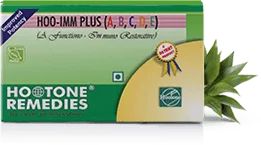

Unani, the ancient Indian system of treatment, works on the perception that materials that can be extracted from vegetables, animals, and minerals have some medicinal value. This perception and the details of the treatment process have been well documented in ancient texts.
According to Unani texts, an obese person is among the most vulnerable among the eight types of disease-prone bodies. The obese are more likely to develop heart disease, orthopedic problems, high blood pressure, diabetes and gall bladder conditions as compared to an average weight individual. Controlling weight using the Unani method involves weight loss solutions that depend on natural weight loss. The natural process requires strict adherence to a regulated diet. A typical diet recommended for obese individuals would mean eating frugal meals alternating with liquids. A typical diet would consist of the following:
- The juice of fresh lime in warm water with a teaspoon of honey early in the morning.
- Non-fat milk with sprouts of wheat or beans for breakfast.
- A glass of fresh orange, carrot or pineapple juice half an hour before lunch.
- Lunch with raw vegetable salad, steamed and boiled vegetables, and buttermilk garnished with cumin seeds, coriander leaves and grated ginger root.
- Lemon tea, coconut water or fresh vegetable soup with some dry fruits in mid afternoon.
- Finally, dinner with whole grain bread, steamed vegetables and seasonal fruits without banana and apple.
For Westerners, a diet that does not include meat may be a bit out of the ordinary, but obesity is a condition that requires hard decisions and sacrifices. Unani has weight loss medications that are mostly prepared using these herbs:
- Garcinia, Garcinia cambogia
- Shilajit, Natural Asphaltum
- Guggulu, Gugulipid
- Gokshuraseed, Tribulis terrestris
- Triphala, Three Myrobalans
- Bhibitaki, Beleric myrobalan
- Rhubarb, Rheum palmatum
- Licorice, Glychyrrhiza glabra
- Tulasi, Ocinum Sanctum
These herbs can also be used as home remedies for herbal weight loss. You will need to borrow the preparation techniques from the ancient texts.
- Juices can be extracted from fresh leaves, flowers or stems of the herbs. The part of the herb to be used should be grounded to make a paste and put in a muslin cloth to squeeze out the juice.
- Most of the herbs are dried in the shade, but some need direct sunlight. Dried herbs should be grounded into fine powder and stored in an airtight container.
- Herbs are also soaked overnight and then boiled in water (1:16 ratio) until the water reduces to a quarter of the original quantity. This fluid can be stored and used later.
- Another method is infusion where 1 part of herb is put in 8 parts of water and put on low heat, taking care that it does not boil. The moisture is then strained and used.
- A tablespoon of honey is the most preferred additive for food items or herbal preparations to make them palatable and dosages vary from one to two tablespoons. Although Unani herbs are devoid of any side effects, it is always better to remain within limits while using them.
HIV/AIDS Treatment in Herbal
HOO-IMM PLUS
(A, B, C, D, E)
The HOO-IMM PLUS (A, B, C, D, E) is an absolutely new, novel, pioneering and revolutionary concept from Unani Herbal to medical science. It is a very safe, efficacious Indian medicine for the relief of AIDS according to the degree & stage of affliction.
View More



